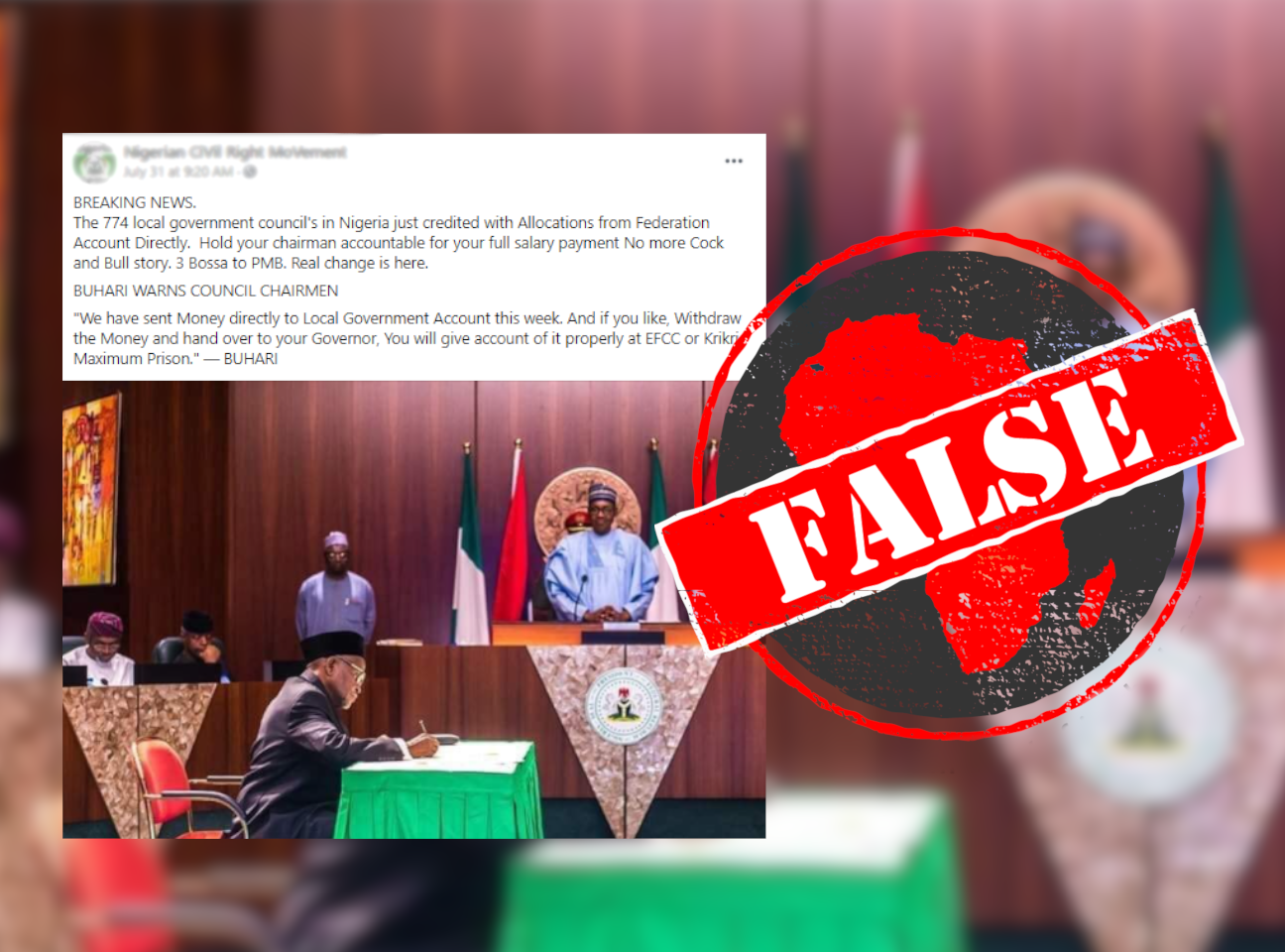A post shared on WhatsApp and Facebook in Nigeria claims Nigeria’s president Muhammadu Buhari threatened local government heads with imprisonment for not paying staff salaries.
The Facebook post reads: “‘We have sent Money directly to Local Government Account this week. And if you like, Withdraw the Money and hand over to your Governor, You will give account of it properly at EFCC or Krikri Maximum Prison.’ – Buhari.”
The Economic and Financial Crimes Commission or EFCC is a Nigerian law enforcement agency that investigates financial crimes. The notorious Kirikiri Maximum Security Prison is in Lagos state, in the southwest of the country.
Did the president make this threat? We checked.

Understanding Nigeria’s local councils
Nigeria has a federal system of government made up of three tiers – federal, state and local governments. The country's constitution grants full autonomy to each tier of government.
The country has 774 local councils and a section of the constitution says that state governments will create the local councils “under a law which provides for the establishment, structure, composition, finance and functions of such councils”.
There is an ongoing controversy around state governors controlling the structure, composition, finances and functions of the councils.
No official publication includes statement
There are no details in the Facebook post about when and where Buhari allegedly made the statement. This kind of lack of detail is often a warning sign that a claim made on social media may be false.
We also found no press release from the president’s office with any such statement and nothing like it on his official social media accounts.
There have been no reports in the mainstream media of Buhari threatening local government heads with imprisonment, as would be expected if the claim was accurate.
The quote attributed to Buhari appears to have been fabricated.
Republish our content for free
For publishers: what to do if your post is rated false
A fact-checker has rated your Facebook or Instagram post as “false”, “altered”, “partly false” or “missing context”. This could have serious consequences. What do you do?
Click on our guide for the steps you should follow.
Publishers guideAfrica Check teams up with Facebook
Africa Check is a partner in Meta's third-party fact-checking programme to help stop the spread of false information on social media.
The content we rate as “false” will be downgraded on Facebook and Instagram. This means fewer people will see it.
You can also help identify false information on Facebook. This guide explains how.


Add new comment